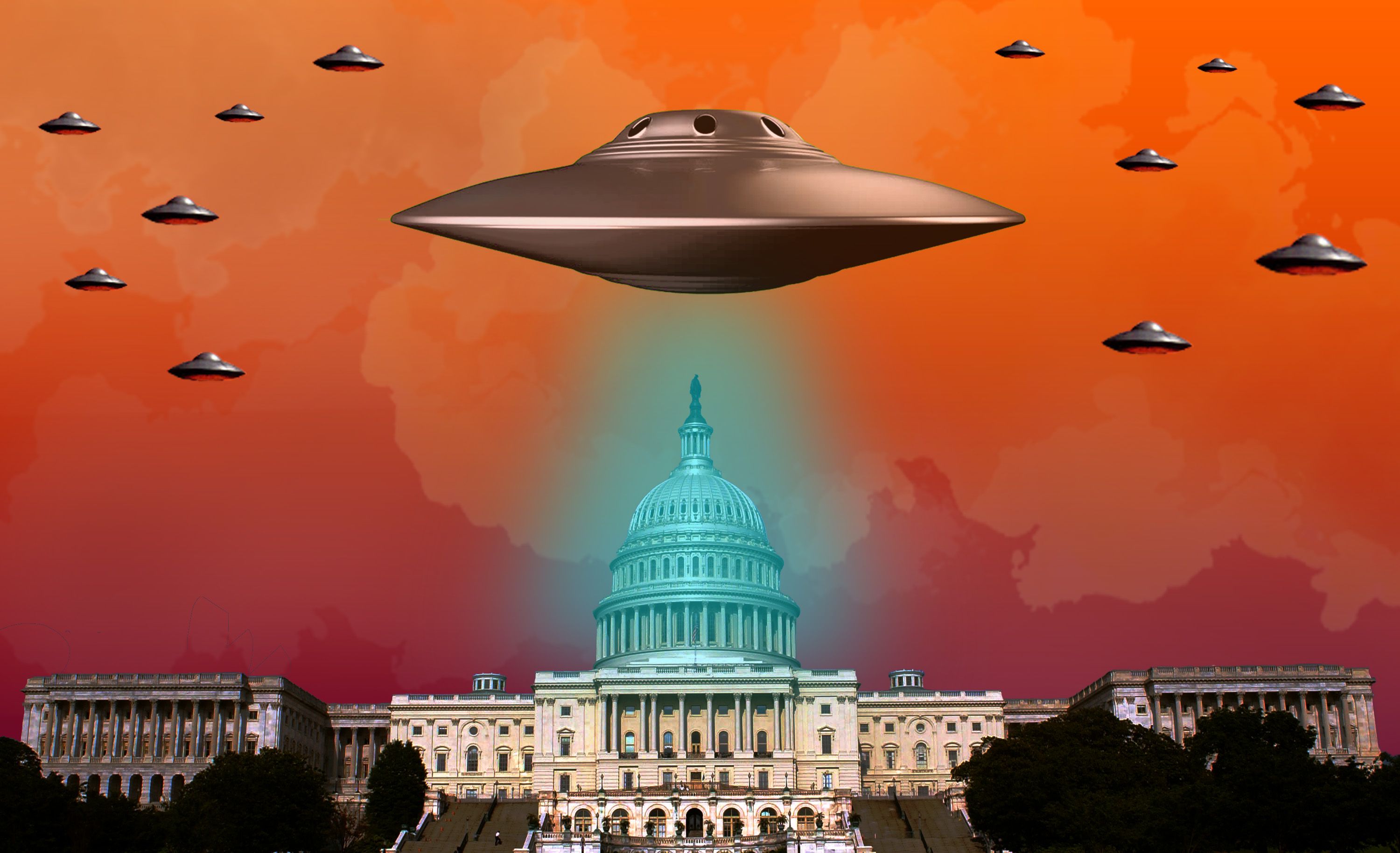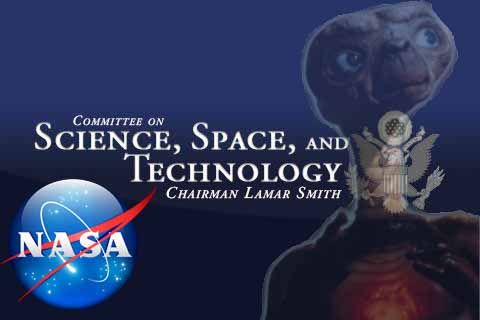Politicians Support Congressional Hearing on UFOs
by Alejandro Rojas May 17, 2018 (denofgeek.com)
• On April 12th, 2018, the political journalism source Politico held an event marking the launch of their space news briefs. Representative Ami Bera (Democrat, California), a ranking member of the subcommittee on space for the U.S. House Committee on Science, Space and Technology, admitted that UFOs piqued his interest and suggested congressional hearings on the topic.
• “It definitely piques interest. It gets people engaged,” agreed Randy Hultgren (Republican, Illinois). The CEO of the Coalition for Deep Space Exploration Mary Lynne Dittmar added, “If there really are things buzzing around in the skies that we don’t understand, then we should take a look at it.”
• Ever since the New York Times broke a story in December that the U.S. government has taken the UFO issue seriously, the topic has reached a higher level of credibility. “You hear these reports. We have been hearing them for decades from many credible people,” Politico Defense Editor Bryan Bender told the panel. “Other countries take it more seriously. They have government researchers who, in the open, not in secrecy, try to explain the unexplainable. Should we be doing more?”
• Not since the 1950s have government officials felt comfortable discussing the topic of UFOs in public.
During a discussion which included members of the House Committee on Science, Space and Technology held by Politico, politicians admitted the issue of UFOs piqued their interest, and one of them says he has suggested congressional hearings on the topic.
Ever since the New York Times broke a story in December that the U.S. government has indeed taken the UFO issue seriously, despite decades of claiming otherwise, the topic has reached a higher level of credibility. The story detailed a secretive UFO research group at the Pentagon that had been in operation since 2007. 22 million dollars were spent investigating “aerospace threats,” and the former head of the program, Luis Elizondo, says they received “many accounts from the Navy and other services of unusual aerial systems interfering with military weapon platforms and displaying beyond-next-generation capabilities.”
In an interview I was able to facilitate for the International UFO Congress, Elizondo said, “So that leads then to the next question if it’s not ours and it’s not theirs then whose is it? I don’t know who’s it is, that’s why we’re asking the hard questions.”
On April 12th, 2018, Politico held an event marking the launch of their space news briefs. In December, Politico had released their version of the Pentagon UFO study within hours of the New York Times article. The article was written by Politico Defense Editor Bryan Bender, who is also one of the authors of Politico’s weekly space briefs. At the recent event, Bender brought up the issue of UFOs.
Bender introduced the topic in a panel with his fellow space briefs reporter and co-moderator, Jaqueline Klimas, Representative Ami Bera (Democrat, California), Randy Hultgren (Republican, Illinois) and President and CEO of the Coalition for Deep Space Exploration Mary Lynne Dittmar. Dittmar is also an advisor to the space council set up by President Trump to advise him on space policy. Both Bera and Hultgren are members of the House Committee on Science, Space, and Technology. Bera is a ranking member of the subcommittee on space.
“You hear these reports. We have been hearing them for decades from many credible people,” Bender told the panel. “Other countries take it more seriously. They have government researchers who, in the open, not in secrecy, try to explain the unexplainable. Should we be doing more? Or is this just crazy sci-fi stuff that is a waste of time?”
FAIR USE NOTICE: This page contains copyrighted material the use of which has not been specifically authorized by the copyright owner. ExoNews.org distributes this material for the purpose of news reporting, educational research, comment and criticism, constituting Fair Use under 17 U.S.C § 107. Please contact the Editor at ExoNews with any copyright issue.


 On December 4, the House of Representatives Committee on Science, Space and Technology of the U.S. Congress held a session discussing the possibility of extraterrestrial life and what should be done to find space aliens. Titled:
On December 4, the House of Representatives Committee on Science, Space and Technology of the U.S. Congress held a session discussing the possibility of extraterrestrial life and what should be done to find space aliens. Titled: